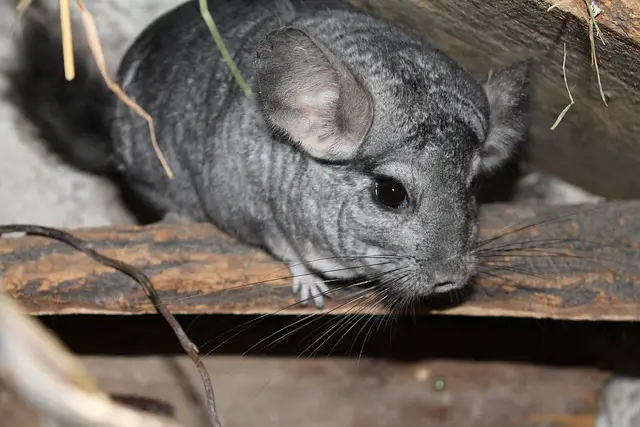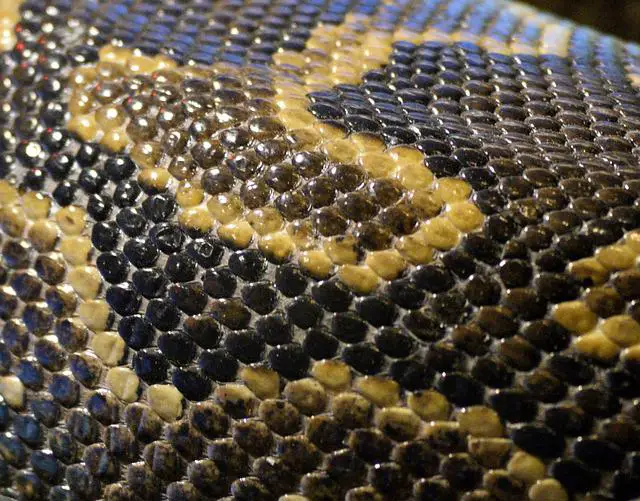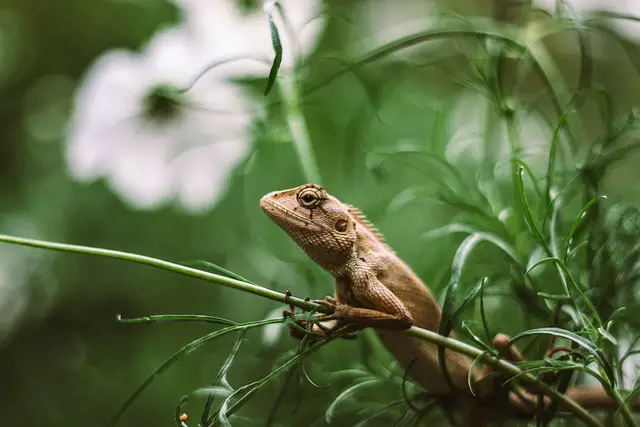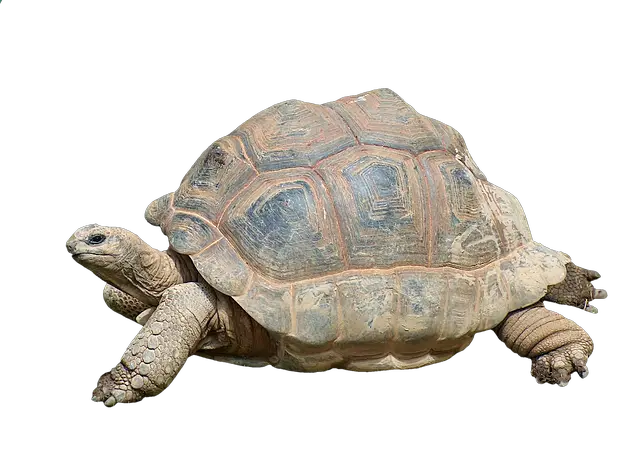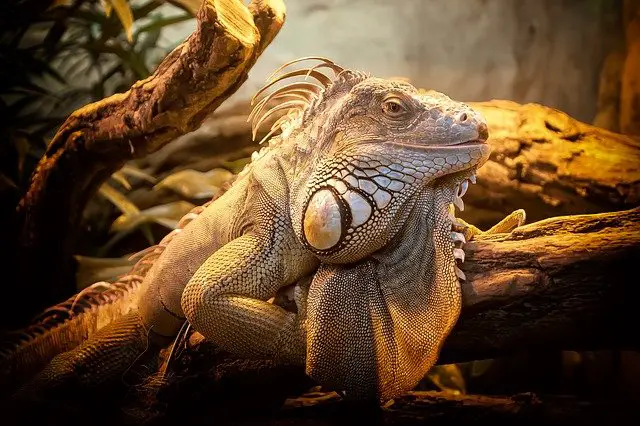In recent years, diffusers have become increasingly popular in creating a relaxing and calming home atmosphere. However, for chinchilla owners, using diffusers may raise concerns about the safety of their pets.
Chinchillas are sensitive animals that require specific environmental conditions to thrive, and any changes to their surroundings can significantly impact their health.
While diffusers may provide benefits for humans, the essential oils used in them can be harmful to chinchillas.
Chinchillas have a delicate respiratory system, easily irritated by strong scents and chemicals. In addition, diffusers can release concentrated amounts of essential oils into the air, which can cause respiratory problems and even lead to serious health issues for chinchillas.
As such, it is essential for chinchilla owners to understand the potential risks associated with using diffusers in their homes.
Chinchilla Physiology
Chinchillas are small, furry rodents native to the Andes Mountains in South America. Their unique physiology makes them sensitive to certain environmental factors, including air quality and skin irritation. Therefore, understanding the physiology of chinchillas is essential when considering the use of diffusers around them.
Respiratory System
Chinchillas have a highly efficient respiratory system that allows them to extract oxygen from thin air at high altitudes. However, this also makes them susceptible to respiratory problems when exposed to irritants in the air.
Chinchillas have small, delicate lungs that can quickly become irritated by airborne particles, including dust, mold, and other pollutants.
When diffusing essential oils or other fragrances, it is crucial to consider the potential impact on a chinchilla’s respiratory system.
Some essential oils can be toxic to chinchillas and cause respiratory distress, including coughing, wheezing, and difficulty breathing. In addition, using diffusers can increase the amount of airborne particles in the environment, exacerbating respiratory problems.
Sensitive Skin
Chinchillas have susceptible skin that is easily irritated by chemicals and other irritants. Their fur is dense and soft, and their skin is thin and delicate. They have a natural oil on their skin that helps to keep their fur soft and healthy, but this oil can be disrupted by exposure to harsh chemicals or irritants.
When using diffusers around chinchillas, it is crucial to consider the potential impact on their skin. For example, some essential oils can irritate chinchilla skin, causing redness, itching, and other symptoms. In addition, using diffusers can increase the amount of airborne particles in the environment, which can settle on a chinchilla’s fur and skin and cause irritation.
Overall, the physiology of chinchillas makes them sensitive to certain environmental factors, including air quality and skin irritation.
When considering using diffusers around chinchillas, it is essential to understand the potential impact on their respiratory system and skin.
Types of Diffusers
Ultrasonic Diffusers
Ultrasonic diffusers use water and ultrasonic vibrations to disperse essential oils into the air. They produce a fine mist that can fill a room quickly and efficiently. These diffusers are often used for aromatherapy and can provide a relaxing atmosphere.
However, they may not be the best choice for chinchillas as they can create a damp environment that can lead to respiratory problems.
Nebulizing Diffusers
Nebulizing diffusers use a high-pressure air stream to break down essential oils into tiny particles that are dispersed into the air.
They do not require water and are considered the most potent type of diffuser. However, they may not be suitable for chinchillas as they can create a strong aroma that can overwhelm their sensitive respiratory systems.
Evaporative Diffusers
Evaporative diffusers use a fan or heat source to evaporate essential oils into the air. They are often portable and easy to use, making them popular. However, they may not be the best option for chinchillas as they can create a dry environment that can irritate their respiratory systems.
In conclusion, while diffusers can benefit humans, they may not be the best choice for chinchillas. Therefore, it is essential to consider their sensitive respiratory systems and choose a diffuser that will not negatively impact their health.
Essential Oils and Chinchillas
Toxicity
Chinchillas are sensitive to a variety of substances, including essential oils. Some essential oils can be toxic to chinchillas, causing respiratory distress, neurological symptoms, or even death. For example, essential oils containing phenols, such as oregano or thyme oil, can cause liver and kidney damage in chinchillas.
Sensitivity
Even essential oils that are not toxic can cause sensitivity reactions in chinchillas. Chinchillas have delicate respiratory systems, and exposure to essential oils can cause irritation, inflammation, or even respiratory distress. Additionally, chinchillas have sensitive skin and direct contact with essential oils can cause skin irritation or allergic reactions.
Chinchilla owners should be cautious when using essential oils around their pets. Even diffusing essential oils in the same room as a chinchilla can be risky, as the oils can be inhaled or absorbed through the skin. Therefore, it is best to avoid using essential oils around chinchillas altogether.
In summary, essential oils can harm chinchillas, even in small amounts. Therefore, Chinchilla owners should exercise caution when using essential oils around their pets and avoid using them altogether if possible.
Effects of Diffusers on Chinchillas
Chinchillas are sensitive animals that require a specific environment to thrive. Many owners use essential oil diffusers to create a pleasant atmosphere for themselves, but the question arises, are diffusers bad for chinchillas? Unfortunately, the answer is not straightforward, as the effects of diffusers on chinchillas can vary based on several factors.
Respiratory Issues
Chinchillas have delicate respiratory systems that can be easily affected by airborne irritants. For example, essential oils, when diffused into the air, can cause respiratory problems for chinchillas. The inhalation of essential oils can lead to coughing, sneezing, and even pneumonia.
In severe cases, it can be fatal. Therefore, avoiding essential oil diffusers in the same room as your chinchilla is recommended.
Skin Irritation
Chinchillas have sensitive skin that can be easily irritated. Therefore, when essential oils come into contact with their skin, they can cause rashes, itching, and other irritations. In addition, some essential oils are more potent than others and can cause severe reactions. Therefore, being cautious when using essential oils around chinchillas is crucial.
Behavioral Changes
Chinchillas are creatures of habit and can become stressed by environmental changes. The use of essential oil diffusers can cause behavioral changes in chinchillas.
The strong scent of essential oils can be overwhelming for chinchillas, causing them to become agitated, anxious, or even aggressive. Therefore, avoiding essential oil diffusers in the same room as your chinchilla is recommended.
In conclusion, the use of essential oil diffusers can have adverse effects on chinchillas. Diffusing essential oils can cause respiratory problems, skin irritation, and behavioral changes.
Therefore, avoiding using essential oil diffusers in the same room as your chinchilla is recommended to keep them healthy and happy.
Alternatives to Diffusers
Air Purifiers
Instead of using diffusers, chinchilla owners can consider using air purifiers to improve air quality in their chinchilla’s living space. Air purifiers can help remove dust, dander, and other allergens from the air, which can benefit both chinchillas and their owners.
It is essential to choose an air purifier designed for pets that do not emit harmful chemicals or ozone.
Natural Scents
Chinchilla owners who want to add a pleasant scent to their chinchilla’s living space can consider using natural scents such as herbs or flowers. Dried lavender, chamomile, or rose petals can be added to the chinchilla’s bedding or placed in a small cloth bag in the cage.
However, ensuring the chinchilla cannot access the herbs or flowers is essential, as they may be harmful if ingested.
Another option is to use essential oils that are safe for pets. Essential oils such as lavender, chamomile, or rose can be diluted with water and sprayed in the air or on the chinchilla’s bedding.
However, it is important to use essential oils sparingly and ensure that the chinchilla is not exposed to them for prolonged periods.
In conclusion, there are alternatives to diffusers that chinchilla owners can consider to improve air quality and add a pleasant scent to their chinchilla’s living space. Air purifiers and natural scents such as herbs or essential oils can be used safely and effectively as long as they are used correctly and in moderation.
Conclusion
After examining the evidence, it is difficult to say whether diffusers are bad for chinchillas definitively. While there is some concern about the effects of essential oils on small animals, there is not enough research to draw a firm conclusion.
Some chinchilla owners report that their pets have had adverse reactions to diffusers, such as respiratory issues or changes in behavior. However, it is essential to note that these are anecdotal reports and may not represent all chinchillas.
On the other hand, some experts argue that essential oils can have health benefits for animals, including chinchillas. For example, lavender oil is sometimes used to calm anxious pets. However, it is important to use essential oils in moderation and under the guidance of a veterinarian.
Ultimately, using a diffuser around a chinchilla should be based on the individual animal’s health and behavior. For example, if a chinchilla shows signs of distress or discomfort around a diffuser, it may be best to avoid using one.
However, if a chinchilla seems unaffected, using a diffuser in moderation may be safe.
Overall, more research is needed to fully understand the effects of diffusers and essential oils on chinchillas. In the meantime, chinchilla owners should use caution and consult a veterinarian before using new products around their pets.

